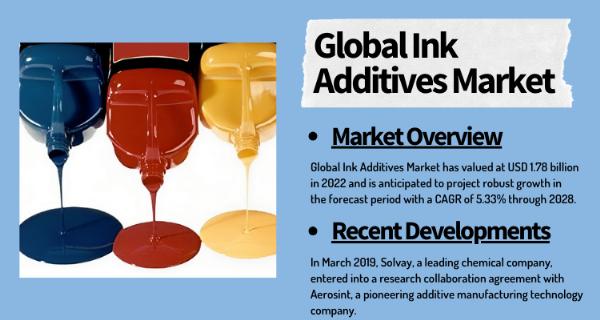The Dark Side of Buying Verified TransferWise Accounts: Risks, Ethical Considerations, and Alternatives
In today's rapidly evolving global economy, cross-border transactions have become a necessity rather than a luxury. Whether you're a digital nomad, e-commerce entrepreneur, cryptocurrency trader, or a multinational business owner, accessing efficient and trustworthy international banking solutions has become indispensable. Among the many fintech platforms available, TransferWise—now known globally as Wise—has carved a reputable niche for itself. However, a growing trend has emerged in online forums and digital marketplaces: people seeking to buy verified TransferWise accounts.
If you want more information, just contact me now. 24 Hours Reply/Contact:
- WhatsApp: +1(443)426-3871
- Telegram: @BuyTopBank
- Email: [email'protected]
While this phenomenon may seem surprising to some, it's a direct response to an increasingly interconnected, digitized, and regulation-heavy financial world. Below, we delve into the motivations, implications, risks, and nuances associated with those choosing to buy verified TransferWise accounts, shedding light on a topic that balances on the edge of innovation and scrutiny.

The Rise of TransferWise (Wise): A Disruptor in Cross-Border Finance
Founded in 2011 by Estonian entrepreneurs Taavet Hinrikus and Kristo Käärmann, TransferWise was built with a singular mission: to make international money transfers cheaper, faster, and more transparent. Traditional banks often burden customers with hidden fees and poor exchange rates. TransferWise flipped the model on its head by offering:
- Mid-market exchange rates
- Low, upfront fees
- Multi-currency borderless accounts
- Seamless integration for personal and business finance
Over the years, the platform gained trust among freelancers, startups, remote workers, and SMEs. However, as Wise's compliance and verification requirements tightened—due to regulatory obligations across multiple jurisdictions—users began exploring unconventional pathways to access these accounts. Hence, the emergence of those looking to buy verified TransferWise accounts.
Who Is Looking to Buy Verified TransferWise Accounts?
The desire to buy verified TransferWise accounts comes from a variety of demographics, each with its own motivations:
- Freelancers in Restricted Countries: Certain countries face geo-restrictions or political barriers when accessing international financial services. Freelancers in regions with limited access to PayPal, Stripe, or Wise often turn to the grey market to acquire verified accounts for receiving foreign payments.
- Crypto Enthusiasts and Traders: Many cryptocurrency users wish to bridge the gap between decentralized assets and traditional fiat systems. Owning a verified Wise account streamlines the process of cashing out or funding crypto wallets through legitimate channels.
- E-Commerce Entrepreneurs: Dropshipping and international e-commerce sellers require reliable payment solutions. A verified Wise account allows them to manage multiple currencies and make bulk supplier payments, all while sidestepping unfavorable banking policies.
- Digital Nomads and Expats: Those who move frequently between countries need financial flexibility. Opening a new bank account in each country is tedious and time-consuming. Hence, they often choose to buy verified TransferWise accounts to ensure uninterrupted access to international finance.
Why the Emphasis on "Verified"?
A basic Wise account is relatively easy to open. However, verification requires documentation—government-issued ID, proof of address, sometimes even a selfie for biometric authentication. These steps are non-negotiable due to anti-money laundering (AML) and Know Your Customer (KYC) regulations. When users look to buy verified TransferWise accounts, they are often seeking:

- Immediate access without undergoing the verification process
- Accounts that are ready to use for high-volume transactions
- Reduced likelihood of being flagged or suspended
- Access to a financial identity in another region or currency zone
However, these conveniences come bundled with a suite of legal and ethical considerations.
The Grey Area: Legal, Ethical, and Security Implications
Purchasing pre-verified financial accounts walks a fine line between utility and illegality. Though not always explicitly illegal depending on the jurisdiction, the act of buying such accounts could be considered a breach of Wise's terms of service.
Legal Risks:
- Identity Misuse: Many of these accounts are created using real people’s documentation, either through consent or fraud. Possessing such an account could be considered identity theft.
- Money Laundering: Governments globally are cracking down on financial obfuscation. An untraceable, unverified trail raises red flags and could invite criminal investigations.
- Account Seizure: Wise maintains rigorous account monitoring systems. If an account is suspected of being sold or misused, it can be frozen permanently.
Ethical Questions: Is it fair to bypass verification protocols that others must undergo? Does the purchase of such an account support a shadow economy of stolen identities? Those who choose to buy verified TransferWise accounts often justify their decisions by pointing to systemic inefficiencies or exclusionary practices. But ethical justifications remain subjective.

The Mechanics Behind Buying a Verified Wise Account
Despite the risks, underground digital marketplaces and even some surface-level forums advertise verified Wise accounts openly. The typical features offered include:
- A completed KYC process with real identity documentation
- Account setup (USD, EUR, GBP, etc.)
- Debit card (optional, often sold at a premium)
- Secure login credentials with optional two-factor authentication
- Backend access to mobile apps and browser interface The sellers claim that these accounts are “safe to use” as long as the buyer does not trigger any compliance flags. Prices can range from $200 to $2,000 depending on the features and age of the account. A crucial caveat: not all sellers are legitimate. Many buyers fall prey to scams, purchasing non-working credentials or being ghosted after payment. Hence, anyone attempting to buy verified TransferWise accounts must proceed with extreme caution—if at all.
Alternatives to Buying Verified Accounts
There are legitimate alternatives to engaging in risky financial behavior:
- Use a Proxy or Representative: If a user cannot open a Wise account due to regional restrictions, a trusted friend or family member in an eligible country can open one on their behalf and add them as a user or grant limited access via API integration.
- Business Registration: Registering a business entity in a compliant jurisdiction opens doors to Wise Business accounts. Some countries offer low-cost, quick entity formation processes that include full KYC-compliant banking privileges.
- Digital Banking Alternatives: Several other fintech solutions offer services similar to Wise, including Payoneer, Revolut, N26, and Airwallex. Some may have looser regional restrictions or simplified verification steps.
Market Demand and the Psychology of Convenience
In essence, the desire to buy verified TransferWise accounts reflects a broader market phenomenon: convenience over compliance. As digital economies evolve, the traditional pace and processes of verification can feel archaic and exclusionary to certain users. Moreover, the gig economy's expansion and the surge of remote work have outpaced regulatory frameworks. Many individuals are caught in a bind—they need global banking access but don't meet the arbitrary requirements dictated by their geography or documentation status. The black market steps in to fill this void, offering rapid solutions at the cost of legality and long-term viability.
Wise’s Response to the Underground Economy
Wise has not remained passive. The platform continuously upgrades its fraud detection algorithms and monitors suspicious patterns in account usage. Common red flags include:

- Sudden logins from unfamiliar IP addresses
- High-frequency logins from multiple regions
- Mismatched name and transaction metadata
- Large-value transactions inconsistent with the account’s history Accounts flagged for such behavior are often frozen pending investigation, with little to no recourse for the buyer—especially if their identity does not match the registered KYC data.
PurchasingVerifier TransferTise 'saccounts can open a gateway to financial and identity-theft risks, moral dilemmas over accounting ethics in the use of stolen identities for transactions' legitimization; optingfor alternative WeTransfer alternatives is not just prudent but ethical. #SecureChoice.














